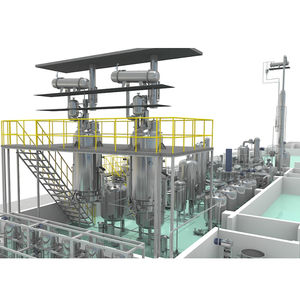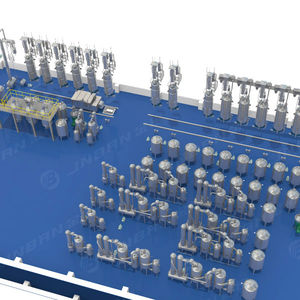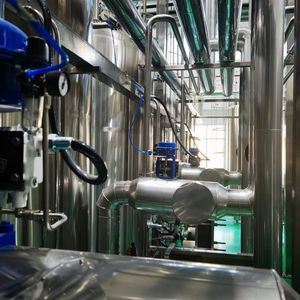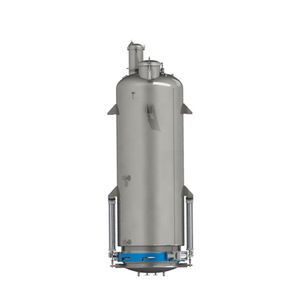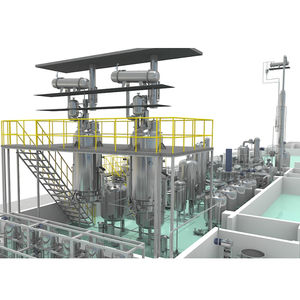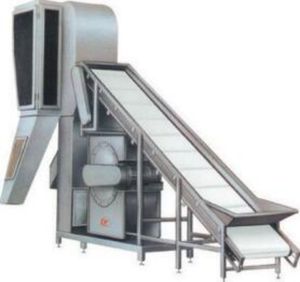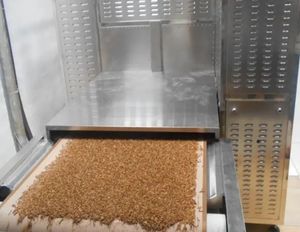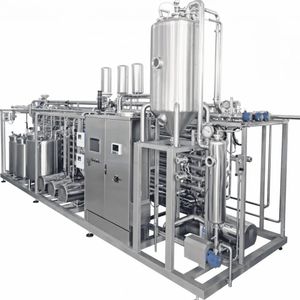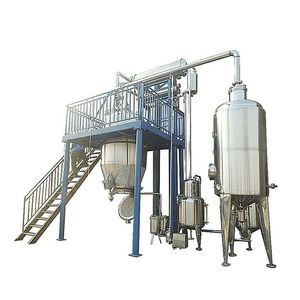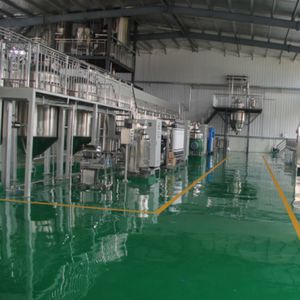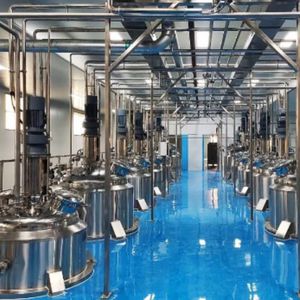
- Production Machines
- Other Manufacturing Equipment
- Processing line
- Wenzhou Jinbang Light Ind Machinery Co., Ltd
- Company
- Products
- Catalogs
- News & Trends
- Exhibitions
Processing line yogurt
Add to favorites
Compare this product
Description
The production process of yogurt involves several key steps.
Milk Selection: High-quality milk is selected as the primary ingredient for yogurt production. The milk can come from various sources, such as cows, goats, or sheep.
Pasteurization: The milk is heated to a specific temperature (usually around 70-85°C) to kill any harmful bacteria present in the raw milk. This process helps to ensure the safety and shelf life of the yogurt.
Cooling: After pasteurization, the milk is rapidly cooled to a temperature suitable for the fermentation process (usually around 40-45°C).
Inoculation: A small amount of starter culture, which consists of specific strains of lactic acid bacteria (such as Lactobacillus bulgaricus and Streptococcus thermophilus), is added to the cooled milk. The starter culture ferments lactose (milk sugar) into lactic acid, leading to the characteristic tangy flavor and thick texture of yogurt.
Incubation: The milk with the starter culture is placed in a controlled environment, typically in large fermentation tanks or individual containers. The temperature is maintained around 40-45°C to promote the growth of the lactic acid bacteria. During this incubation period (usually 4-8 hours), the bacteria consume lactose and produce lactic acid, causing the milk to thicken and form a gel-like consistency.
Flavoring and Additions: After the desired fermentation time, additional ingredients such as fruit purees, sweeteners, or flavorings can be added to the yogurt to enhance its taste and variety. This step is optional and depends on the desired yogurt product.
Cooling: The yogurt is cooled to stop the fermentation process and preserve its texture.
Catalogs
No catalogs are available for this product.
See all of Wenzhou Jinbang Light Ind Machinery Co., Ltd‘s catalogsOther Wenzhou Jinbang Light Ind Machinery Co., Ltd products
SOLUTION
Related Searches
- Production machine
- Automatic making machine
- Laboratory-scale reactor
- Process reactor
- Continuous production machine
- Food production line
- Pressure reactor
- Processing plant
- High-speed production machine
- Steel reactor
- Chemical reactor
- Stainless steel reactor
- Reactor for the pharmaceutical industry
- Flexible production machine
- Stirred-tank reactor
- High-temperature reactor
- Continuous-flow reactor
- Modular production line
- Multiple reactor
- PLC-controlled making machine
*Prices are pre-tax. They exclude delivery charges and customs duties and do not include additional charges for installation or activation options. Prices are indicative only and may vary by country, with changes to the cost of raw materials and exchange rates.


